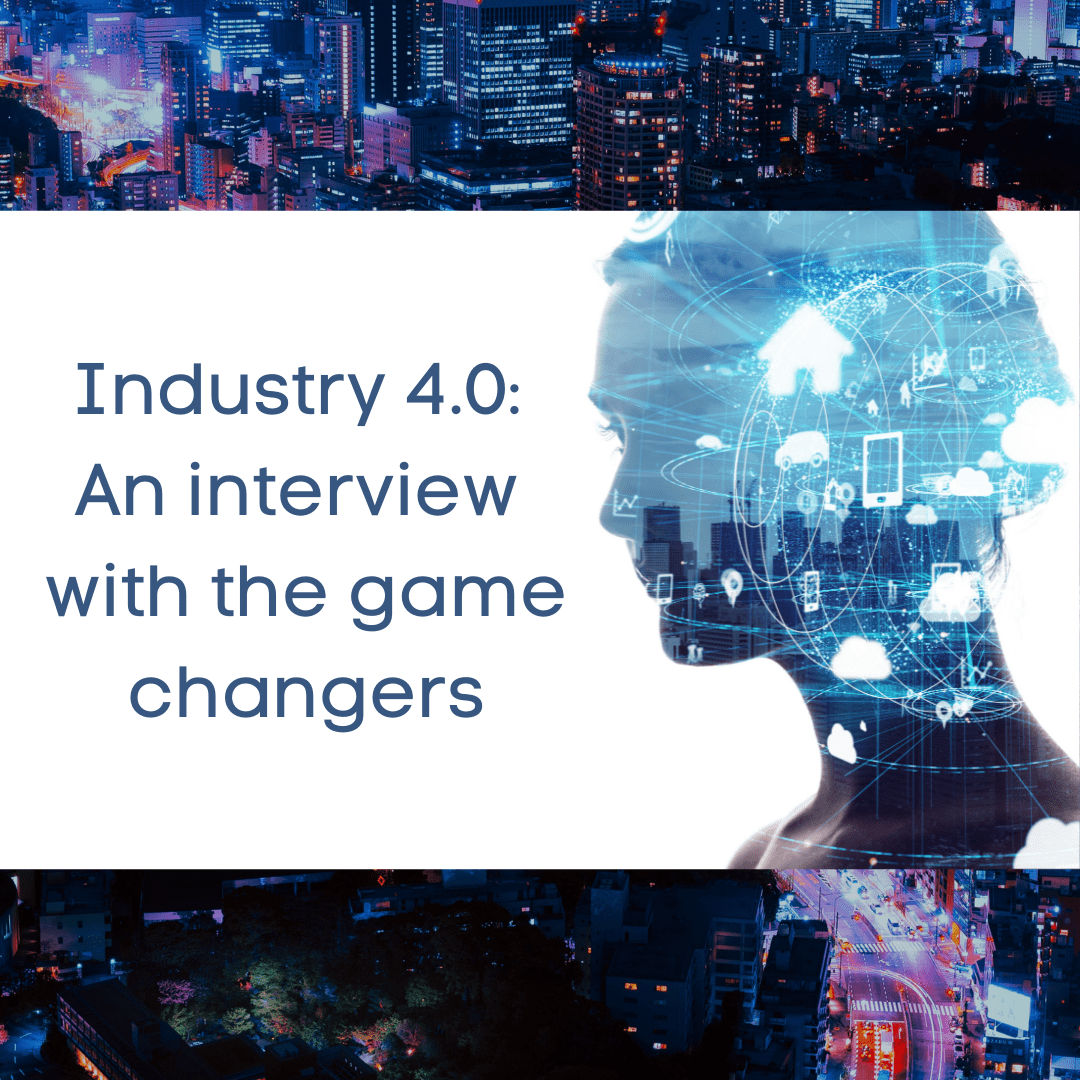
 What is Industry 4.0
What is Industry 4.0To understand Industry 4.0 (the fourth industrial revolution), we need to look at the past to better understand the present.
The first industrial revolution started with the use of steam power, the second with the utilization of electricity and mass production. The third saw automation, robots, computers and electronics.
According to i-Scoop, Industry 4.0 is the digital transformation of the third industrial revolution through the digitalization of manufacturing, production and related industries and value creation processes.
Simply put, Industry 4.0 describes the growing trend towards automation and data exchange in technology and processes within the manufacturing industry, including the Internet of Things (IoT), Artificial Intelligence (AI), cloud computing, and smart factories.
Industry 4.0 introduces a broader use of artificial intelligence. Thus, industrial and engineering companies want to exploit its capacities.
Consequently, AI has brought tremendous advancements in engineering and production processes, such as the simulation of production models, without compromising process quality or interrupting the production itself. AI techniques such as machine learning (ML) and deep learning (DL), if well implemented, have significant positive effects on companies’ return on investment.
For example, Siemens uses AI to monitor variables (e.g. temperature) on their gas turbines. AI adjusts the machine’s operations to increase efficiency without unwanted by-products, therefore cutting costs.
AI provides the possibility of eliminating time-consuming and repetitive processes for workers, which in turn eliminates human-made errors caused by monotonous repetition or fatigue. Some companies use AI to spot potential problems and possible solutions, often before a human operator notices the issue.
In this article, I interviewed three CEOs in locally-based technology companies about their technological advancements and the future challenges they face.
They are:
Dr. Pierre Baque, CEO of Neural Concept,
Dr. Nicola Tomatis, CEO of Bluebotics, and
Philippe Lambinet CEO of Cogito Instruments.
They run three companies in three different markets, but all have one aim: advancing technology to provide better services to their clients.
Every company builds its brand and identity, however being in the same technological domain, it is not always easy to differentiate from their closest competitor. Our interlocutors present their view of bringing their company in front of other similarly thinking companies.

Philippe Lambinet CEO of Cogito Instruments
Cogito Instruments provide an AI solution that enables users to remain in total control of their data, so there is no need to send it to the Cloud. “Our solution gives users the ability to create accurate models and then continuously improve their models over time thanks to the continuous incremental learning,“ Mr. Philippe Lambinet, Cogito Instruments
“We are offering unique advanced technologies to the market, which are in most cases not available at our competitors. Our AI software which learns from CAD (Computed Aided Design) and CFD (Computer Fluid Dynamics) data was the first in its domain. We have made it even better by increasing the flexibility of its integration with the user’s interface.” - Dr. Pierre Baque, Neural Concept.
“With two decades of experience, vehicle automation is a challenge that we at BlueBotics understand deeply. Our core Autonomous Navigation Technology (ANT®) allows vehicle makers to produce robust and accurate automated vehicles (such as AGVs and forklifts) and mobile robots, which are installed in days rather than the more traditional weeks.“ Dr. Nicola Tomatis, BlueBotics
For a successful company, careful planning is the utmost. It includes a reflection on current capacities, accomplishments, and lastly a vision of a feasible future.

Dr. Pierre Baque, CEO of Neural Concept
For Dr. Tomatis, the goal is clear. It is “to be the global reference in autonomous navigation, building on the more than 2,500 ANT® driven vehicles that are today in operation.”
Lambinet firmly feels that his company’s goal is to become the de-facto standard for decentralised AI while at the same time completely respecting customers’ data privacy and reducing their carbon footprint.
Dr. Baque says that “Neural Concept started as a university-based project, with the technologies used exclusively by experts in high-end companies, looking for really specific neuro-technological complements. We are close to bringing these capabilities to a broad number of engineers who do not necessarily have the time to develop this type of technology, they just want something that works better and more rapidly. That is where we want to enlarge the clientele, to provide the same technology, providing the same benefits more easily and being more adaptable.”
Industry 4.0 brings a lot of opportunities, but there are underlying threats too. Adapting new technology and approaches often requires changing current procedures or identifying the right steps for its implementation.
Dr. Baque states that ‘’Our technology was built natively on the Cloud. It is a Cloud-first technology, and all the processes are optimized for the cloud. However, due to the regulations related to data privacy and customers’ policies, our challenges lay mostly in the adaptation of our technology to be used on a local server or a desktop computer.”
By contrast, Dr. Tomatis believes that Industry 4.0 is more an opportunity for their autonomous navigation solutions. For example, their fleet management software – called ANT® server – can be easily integrated into a company’s existing warehouse management or ERP system. Likewise, fleets of automated guided vehicles (AGVs) and mobile robots can use this software’s API to interact with other on-site equipment such as machinery and automatic doors – the robots can even ride elevators unaccompanied!

Dr. Nicola Tomatis, CEO of Bluebotics
The main challenges are linked to the availability of useful and relevant data says Lambinet. As he points out, “many industrial companies do not understand which information is needed for which objective, and that is why it is difficult to engage with any of the IoT plans. Without proper data and a clear understanding of what the goal is, there is no possibility of installing AI systems nor solving the pain points.”
To keep the overall productivity and profitability at the highest level, a company needs to determine and follow current and future business trends. In both cases, determining a trend helps a company to better adapt and organize its capacities and resources, hence optimizing its human potential and assets.
Lambinet believes that users will care more about privacy and will refuse to let third parties handle their data. Also, he adds that machines will have more of the human capability to learn in real-time, and incrementally, using very little data.
Dr. Baque feels that: “If we say that our industry is computer-assisted engineering, simulation, and design, I think that the designers and engineers will have access to more tools that can guide them towards better-performing designs in a much faster way than is currently possible. In the past there was design optimization. This was only accessible to advanced engineers in some elite companies. But now, the trend is going towards having more design activities that will be supported by smart algorithms.”
Dr. Tomatis states that “We fully expect automation and supply chain processes to become more complex. However, by contrast, the technologies themselves – including AGVs, mobile robots, and the navigation technology that drives them – will become easier to use and more affordable. This will, in turn, expand their adoption and help when automating those complex processes.”
We would like to extend an enormous thank you to the three CEOs for taking the time out of their busy schedule to speak to GBN and wish them all continued success for their companies.
FORMATIONS INTELLIGENCE ARTIFICIELLE Genève, Vaud, Valais, Neuchâtel, Fribourg